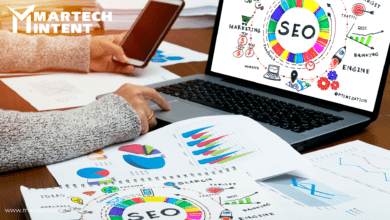The Future of MarTech: Trends, Innovations, and Strategies

Introduction: The Future of MarTech
The future of MarTech (Marketing Technology) is a landscape ripe with opportunities and challenges, driven by rapid technological advancements and changing consumer behaviors.
In this blog post, we will explore the emerging trends, innovative technologies, and strategic approaches that will shape the future of MarTech, with real-world examples to illustrate these concepts.
AI-Powered Marketing
Example: HubSpot’s predictive lead scoring leverages AI to identify leads most likely to convert, enabling marketing teams to prioritize their efforts effectively.
AI is revolutionizing MarTech by providing data-driven insights, automating tasks, and enhancing personalization.
From chatbots that engage with customers 24/7 to predictive analytics that forecast consumer behavior, AI is becoming indispensable in marketing strategies.
Hyper-Personalization
Example: Amazon’s recommendation engine offers personalized product suggestions based on user behavior, boosting customer engagement and sales.
Consumers expect more personalized experiences. MarTech tools, such as customer segmentation and recommendation engines, enable businesses to tailor content and offers to individual preferences, leading to higher conversion rates and customer satisfaction.
Marketing Automation Evolution
Example: Marketo’s Engagement Platform automates multi-channel marketing campaigns, streamlining lead nurturing and customer engagement.
Marketing Automation is evolving to offer comprehensive solutions that integrate seamlessly with CRM, content management, and analytics.
This evolution enhances workflow efficiency, reduces manual tasks, and drives better lead management.
Voice Search Optimization
Example: Domino’s Pizza allows customers to place orders via voice commands on platforms like Amazon Echo, embracing voice search.
As voice-activated devices become ubiquitous, optimizing content for voice search is crucial. MarTech tools can help analyze voice search queries and adapt content to conversational queries, ensuring brands remain visible in voice search results.
Data Privacy and Compliance
Example: Apple’s App Tracking Transparency (ATT) framework gives users control over app data tracking, aligning with data privacy regulations.
Data privacy concerns and regulations like GDPR continue to shape MarTech strategies. Adhering to these regulations is essential to maintain trust with customers while leveraging data effectively for marketing campaigns.
Augmented Reality (AR) and Virtual Reality (VR)
Example: IKEA’s AR app lets customers visualize furniture in their homes before making a purchase, enhancing the online shopping experience.
AR and VR are transforming how brands engage with consumers. MarTech can leverage AR for interactive product experiences and VR for immersive storytelling, providing unique and memorable interactions.
Sustainability and Social Responsibility
Example: Patagonia’s “Worn Wear” campaign encourages customers to buy used Patagonia items, promoting sustainability and responsible consumption.
Consumers are increasingly drawn to brands that demonstrate social and environmental responsibility. MarTech plays a role in conveying these values through content and engagement strategies.
Learn more about 13 New and Emerging Martech Trends and How to Leverage Them
Conclusion: The Future of MarTech
The future of MarTech promises exciting opportunities for brands to engage customers more effectively and build lasting relationships.
Embracing AI-powered marketing, hyper-personalization, evolving marketing automation, optimizing for voice search, ensuring data privacy, exploring AR and VR, and demonstrating sustainability and social responsibility are key strategies to stay competitive.
To navigate the evolving MarTech landscape successfully, businesses must adapt, invest in cutting-edge technologies, and prioritize ethical and customer-centric approaches. By staying attuned to these trends and leveraging innovative MarTech solutions, organizations can thrive in an increasingly dynamic and competitive digital marketplace, delivering memorable experiences and achieving long-term success.




